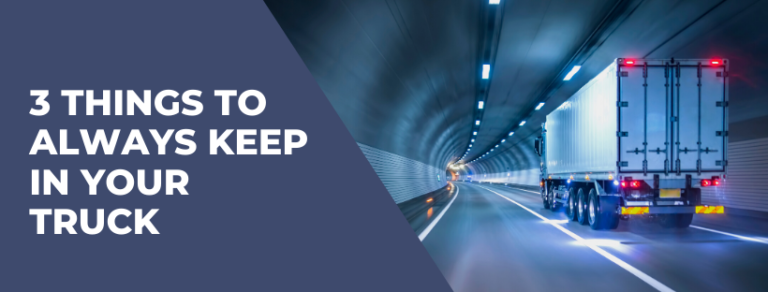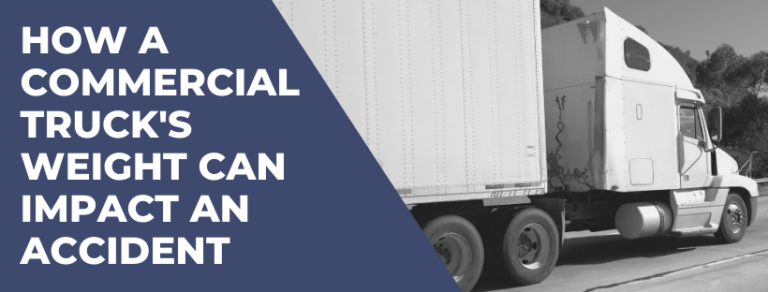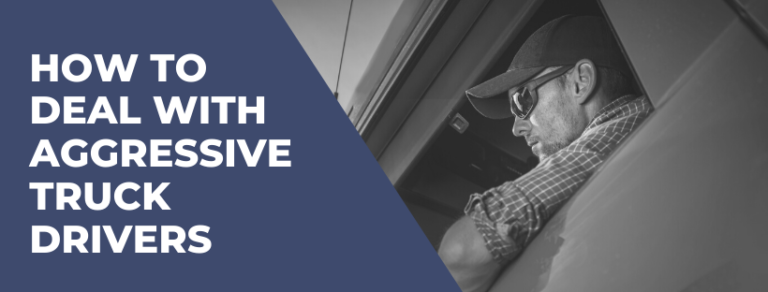You may have heard of a black box in the context of an airplane or other aircraft. When a plane crashes, the black box data can help determine what happened moments before the crash.
Truck black boxes operate similarly — they’re installed in commercial trucks such as semi-trucks, and they record and store information, including a truck’s speed and location and the driver’s behavior.
For people injured in a truck accident, the truck’s black box data can be crucial in building a strong case.
This blog explains everything you need to know about truck black boxes and why it’s vital to access this data as soon as possible after an accident.
What Is a Commercial Truck Black Box?
A black box — also called an Electronic Logging Device (ELD) — is an electronic device installed in commercial trucks, known as semi-trucks, 18-wheelers, and tractor-trailers. The Federal Motor Carrier Safety Administration (FMCSA) mandates that all commercial trucks be equipped with black boxes.
The benefits of truck black boxes are manifold — they help trucking companies track when and how truckers are driving to ensure they’re complying with federal regulations, they keep motorists safe by ensuring drivers of commercial trucks get the rest they need, and they show how and why a truck accident occurred.
The data collected from a semi-truck’s black box — especially in the five to ten seconds before the crash — can prove vital in determining what happened and who is at fault.
What Data Does a Commercial Truck Black Box Record?
You might be surprised at how much data a commercial truck’s black box records. This includes information about the driver’s speed and location (using GPS coordinates), steering information, brake activity (such as if the brakes were used or if the driver slammed the brakes), and if the driver was wearing a seat belt.
How Can the Data from a Commercial Truck Black Box Help with a Claim after a Truck Accident?
It’s easy to see how valuable this information can be in the event of a truck accident — if the black box data shows the driver was speeding and failed to brake, it’s much easier to hold them liable — even if the driver or their employer (the trucking company) claims they were driving at an appropriate speed. Likewise, it can rebut misleading claims, such as if an individual accuses a trucker of driving while distracted and tries to recover compensation. Yet, the black box data shows they did everything correctly.
If you’re in a truck accident and think you may be entitled to compensation, it’s vital to remember that a truck’s black box — while crucial — is still just a single piece of evidence. To present a strong case, you need supporting evidence, such as eyewitness statements and photographs.
What Other Uses Are There for Commercial Truck Black Box Data?
The data stored in a semi-truck’s black box isn’t only useful for truck accident investigations. Trucking companies regularly use black box data to identify areas of improvement. For example, if the data shows that several truckers are not wearing their seatbelts on the road, the trucking company can address it in training sessions or sanction drivers who fail to abide by the law.
In some cases, the data may show that truckers are at maximum capacity and that additional deliveries require drivers to be on the road for longer than allowed. Then, the truck company can hire new drivers or secure a bigger fleet to meet demand without compromising the safety of their employees and others on the road.
Accessing the Data from a Commercial Truck Black Box
So now we know how important the information inside a black box is, but how do you get it? Accessing data can be complicated, as the trucking company is unlikely to contact you and offer the evidence — especially if it indicates they or their employee are liable for your accident!
This makes it vital to act fast and contact a truck accident lawyer, who can petition a court order to preserve the evidence.
Once preserved, the data needs to be downloaded by qualified experts who can interpret it. Our truck accident attorneys in Greenville can gather the data from a truck’s black box and use it to reconstruct the accident to show fault. This can be especially valuable if the party responsible disputes the events leading up to the crash.
Why It’s Important to Obtain Black Box Data Quickly
The data stored in a commercial truck black box can be critical to determine who’s at fault for your truck accident. However, it’s essential to download and analyze this evidence as quickly as possible to prevent the spoliation of evidence.
This legal term covers any intentional or negligent act resulting in a truck’s black box data being altered, hidden, or destroyed.
This can be done in several ways. If a truck company believes the data could be used to prove they are responsible — which could result in a massive payout to the injured party or parties — they might tamper with the evidence by altering or erasing data or even getting rid of the black box itself.
A trucking company might intervene and get rid of evidence even if their employee was solely responsible for the crash. For example, suppose a trucker causes an accident because they are working overtime and are fatigued. In that case, you might be able to also claim from the trucking company, which, as the employer, is required to look after their driver’s wellbeing and ensure they don’t violate hours of service regulations (how long truckers are legally allowed on the road).
The Limitations of Commercial Truck Black Box Data
We’ve already touched on the fact that a truck’s black box doesn’t tell the whole story. Data may not be completely reliable, especially if it hasn’t been calibrated properly or maintained by a professional, and it can’t provide information about other potential contributory factors, such as road conditions and what other motorists were doing.
If you want to recover compensation successfully, it’s also not enough to prove that the truck driver or trucking company was fully or partly responsible for your accident — you also need to show you suffered losses as a result.
These might include lost wages from not being able to work due to your injuries, the costs of repairing your car (or replacing it if it’s totaled), and your medical expenses, such as if you need surgery, medication, and physical therapy to treat your injuries. Some of the evidence you might need to support your claim includes:
Eyewitness statements: Statements from other motorists involved in your crash or pedestrians who saw what happened can support your claim, especially if it corroborates the commercial truck’s black box data.
Evidence from the scene: Our Greenville personal injury lawyers recommend that accident victims gather evidence after a truck accident if they can. Physical evidence such as photographs of skid marks, debris, and vehicle damage can help accident investigators reconstruct the accident and explain what happened.
Medical records: Your medical records can show when your injuries occurred, preventing the truck driver, trucking company, or any other party responsible from claiming you sustained your injuries later on. Make sure you hold on to any bills for treatment, as you can recover the costs in your claim.
Paychecks: Truck accidents often result in severe injuries that may leave you unable to work for months or years. Your payslips will show how much you earn, allowing you to claim your lost wages for however long you’re out of work.
A commercial truck’s black box is incredibly valuable for determining who’s responsible for your truck accident, but it’s only one part of a much bigger puzzle. Our truck accident lawyers in Greenville, South Carolina, can investigate your accident, preserve and analyze black box data evidence, and negotiate a fair settlement for your injuries.





